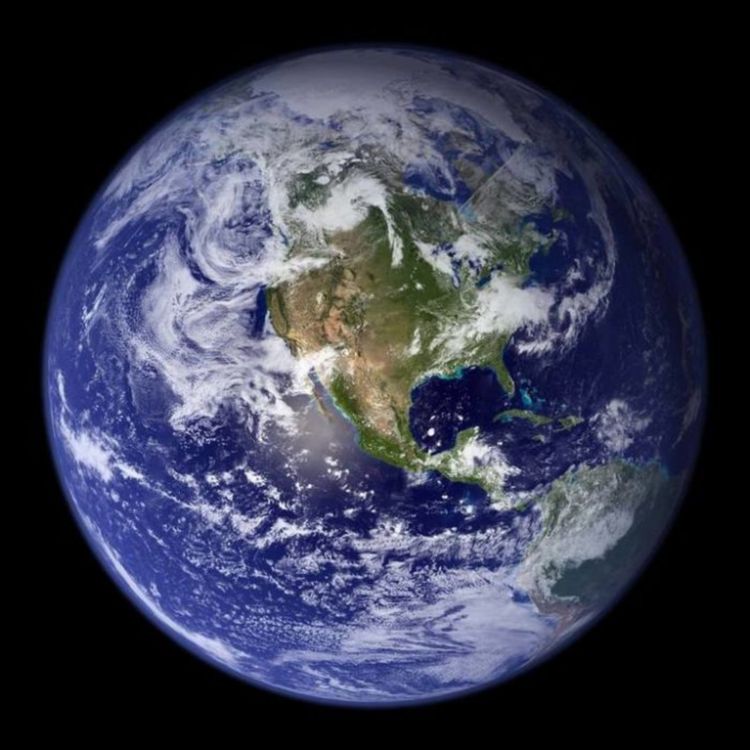Share

This Sustainable Life
365: Assaulted again and scammed
Here are the notes I read from (maybe better just to listen):
Yesterday two things, I'll start with second because more poignant.
Ran into old friend a few weeks ago, clubbing, Submedia.
Met at bar, first time since March, ready to walk away, wasn't going to order doof. But distant, outdoor, nearly empty.
Talking for about an hour, a lot on how I transitioned.
Talking about TV show.
As an aside, he remarked knowing my regular background made stewardship more compelling and interesting than just tree hugger.
While talking, some guy starts rooting through trash can on street, throwing trash everywhere. I remark, almost act.
Then he starts yelling at us, threatening.
Dave, fresh from kickboxing stands and advances toward.
Guy points at me! throws bottle, shatters, leaves.
Five minutes later comes back, hauls off and throws bottle hard, shatters huge, all eyes are on situation.
Dave advances, I back him up. Gut yells at Dave, hard to understand since mostly Spanish, threatening, fists up, mostly at Dave, partly me.
Guy crosses street, Dave pursues, guy has lost advantage.
Dave crosses street, in guy's face, less threatening physically, but aggressive.
Through broken Spanish while still threatening Dave and me becomes clear.
He felt we were putting him down for having to eat from trash.
Instead of resolving or trying to reach understanding, throws bottles, so still crazy but different, not just malevolent or hurtful, defending.
Dave and I walk away feeling compassion, sad that he's in that situation, and sad that his resolution involves assaulting us.
Coming back workmen curious, cop asks a few questions.
You may have heard that I swam across Hudson River two weeks ago today for first time since 2008, twelve years ago. At nearly 50 years old, sort of risky.
Major life achievement. Why am I holding back on posting it? Because I wanted the video. Here's that story.
Two years ago
Last year, friend commits, backs out for reason he could have known.
Invite other friend, he loves it, life goal for him too I knew he was swim instructor, life guard too. Says he'll bring equipment.
I say, so I don't need to bring a camera. No, he has one.
Before swimming, I interview Joe De Sena and get invited to Vermont.
I invite friend, who is overjoyed, another life achievement.
He's marketing his coaching, sees huge benefit to webcasting from Spartan Race farm.
Joe and I have hit if off, hence the invitation to an invitation-only event, plus as I've shared, my carrying my rowing machine and kettle bell to roof. I offer to introduce him to Spartan community. As long as I'm there, I intend to share friends with friends.
We swim across, I'll share in post about swimming.
Ferry approaching us, scary. He jokes, good to have white person in facing authority.
After we reach shore, I hold on to his swimming equipment so ferry people don't identify him as swimmer they thought breaking lawn Before Friday, he says he can't drive. Family needs car.
I feel disappointed, but contact Spartan Up people. We go into overdrive finding someone I can ride with.
Many potential options, but only one works. I have to take train to.
Connecticut early next morning, but I make sure space for my friend.
Turns out he can't make early ride.
After we get back I text him how he would have liked it but next time, and ask him about video. No response.
Read text trail.
Our mutual friend defends him. Says I'm making a big deal about nothing, but sends twenty texts. What's going on?
I give up. Confused about what to do as weeks pass that I can't share about life event without explanation.
Finally yesterday he emails me. Read email.
My read of situation: I didn't bring camera because he said he would create. Never discussed charging.
Now I have huge interest in something he has uniquely and holds it ransom, having said he would take care of it so I didn't try, as I would
have.
So I figure I'll write him and remind, when I offered, it sounded like major life event. I invited as friend. No thought to charge for conceiving or planning, but what price would he consider fair?
No thought of introducing him to Joe and Spartan community, happy to help him make that invitation into making him look great to his community.
Now, of course, I see I dodged a bullet as if he started nickel and diming them, it would have made me look bad.
But no thought of charging him for introduction. On the contrary, put in extra work to make sure he would be welcome and could get a ride.
All he had to do was send a link to a file. Instead he holds it ransom for two weeks, maybe indefinitely, and tries to make money off me.
Cheap nickel and dime stuff. I don't make money on my blog. I don't know where he's coming from, but taking advantage of my huge demand and scarcity he created, whether intentional or not, deceptively.
When I asked him if I said anything offensive, I knew I hadn't. I was giving him an out from behavior anyone I know would feel embarrassed and ashamed to be doing.
Race and gender seemed to play roles in these interactions. Would the guy have thrown a bottle at us if we were female? He was definitely
racist toward Dave. Would friend have tried to scam me if female? Comment on race while swimming would have been called micro aggression or macro if reversed.
Was I targeted because I am white or male? I can't say because I don't know their hearts and minds.
But I know this. When I share how I suffer, people consistently tell me how others suffer more. Nobody ever asks my experience.
Do I need for the bottle to hit me and knock me out, for the guy with the knife to cut me for people to stop telling me to put it in perspective?
Can you imagine lecturing a woman victim or a black victim about distractions from their experience?
All this prelude to what I'm getting at People often send me to articles describing how inequality feels when you have less. When you start the race behind the starting line.
Many of these articles describe how you can never escape feeling of being outside, being other, not being understood.That's how I feel. Maybe there's a white male suburban culture blind to suffering, where cash is free and no one hurts. I don't know. It's as foreign to me as
every description I've come across.
I'm aware of my sex and race every day, all the time, and how people see me as less than human, as fair targets for violence, as fair targets
for scamming.
Twice in two weeks after deciding to open up on race. Do you think that's coincidence? Sorry, three times. No, it happens all the time,
since my entire life. I could tell hundreds of stories like this.
I see marches full of whites saying how bad it is for blacks and other people of color. I see videos of white kneeling before blacks asking
forgiveness for I guess ancestors' crimes, or system I am not an ally for equality. Nobody wants equality more than I do. People of other skin colors or sexes don't because of their skincolor and sex know racism or sexism or homophobia or pick your stereotype and I don't or can't because I'm white.
I know it. I live it. If you can't accept that, I hope you get over your stereotype and see me as a person who feels pain, who is attacked,who started behind the starting line too and then gets beat up along the race but gets told he had a head start and says he caused getting beat up or at best those assaults downplayed or ignored, then told if I really understood I would see my privilege.
All these whites and men saying how bad it is for others, are they really not suffering? If so, I'd like to learn what it is to be white and male like them because it is as far from my experience as anyone else described their distance.
I think more likely, they aren't comfortable sharing their troubles and are only postponing actual open, honest talk and action about equality. Everything I see seems consistent with white bad, male bad, but we aren't bad. We're just like everyone else.
There is racism, sexism, homophobia, and more.
The path we are on will lead not to the end of these things, but to putting different groups on top or battling it out.
Anybody can see that when one group says the best thing you can do is shut up and listen, while also claiming diversity and inclusion, you can see who has the power in that relationship.
Everyone has their story. I'd like to say nobody got a free pass or automatically feels understood. Possibly many whites and males do, which is hard for me to grasp, but if so, their story is not my story, nor the story of many other whites or many other men and to paint me with their brush further beats me up on this privilege race track analogy I didn't make up but that people keep imposing on me. People who know me increasingly tell me that my story and experience are different, implying that maybe I do know suffering more than the
average white or male. Most haven't felt such lifelong repeated assault from women and people of color. Either I'm a special case, in which case it would seem my voice has value and people should listen more to me. Or I'm not, in which case we should recognize that all whites and all men suffer too and the starting line analogy starts falling apart.
Or maybe you say I haven't really suffered, in which case what more do you need? How many more women need sexually assault me, what some would call rape, how many men do I need to know sexually assaulted and raped, how many whites victimized? What does it take?
I believe everyone has known this pain. If not, maybe my voice can help illuminate what by any definition except white bad male bad heterosexual bad is exclusionary, non-diverse, sexist, racist, and all the other stereotypes exactly when claiming the opposite and trying to
achieve the opposite.
I believe it doesn't take much to pursue seeing equality of humanity in each person, but we aren't doing it. At least I don't see it in the protests nor the counter protests.
My issue is the environment. I believe working together on what ties us together and transcends skin color, sex, orientation, age, etc -- project-based learning -- can solve these problems more than marches.
Yes, there's police brutality, unequal access to resources, and more.
If you want to see suffering, as an American, look at what your system no matter your color or anything does to people everywhere for your comfort and convenience, to ourselves. It's not litter, it's sterilized, cancer, birth defects, war, famine on scales greater than the whole
population of this country, and not just this country, even within the countries suffering most, people there contributing to this system.
Even greater suffering, look at future generations to make today look like a walk in the park IF WE DON'T ACT TOGETHER TODAY TO STOP POLLUTING and reverse this system that relies on pollution and treating others as inhuman independent of their skin color or anything else.
Beneath everything else, we breath the same air, drink the same water, and eat the same food from the same land and seas.
Focusing on those things, I believe, can bring us together in common humanity more than anything else. In the past, sports, military, arts, science, and other cultural activity has helped us overcome stereotypes.
I think of Jackie Robinson, Muhammad Ali, Ping Pong diplomacy, Zora Neale Hurston, Duke Ellington, Paul Robeson, Marie Curie, countless men sharing the same foxhole in battle who learned to love each other I believe that stewardship, loving nature, battling the systems that pollute, impoverish, and separate us will bring us together like nothing before.
Beneath skin color, beneath genitals, beneath it all, we breath air, drink water, and eat food. Frankly I see almost no one seeing that starting point, nor fighting the systems taking away even that.
But I am. If you see me as a white who doesn't understand non-white or a male who doesn't understand non-male or heterosexual who doesn't understand the rest of that rainbow, then you don't understand me
either.
Now let's restore the nature we all need to live together.
More episodes
View all episodes

846. 846: Gail Eisnitz: The Inside Story of a Life Investigating Factory Farms
01:00:13||Ep. 846Gail shares her investigations into meat industry practices, exploring how exorbitant slaughterhouse production line speeds in a consolidated slaughter industry affect animals as they are being handled and killed, and how the proliferation of massive factory farms impacts animals being raised in intensive confinement.She spent decades in the field documenting violations against farm animals and in the office preparing cases and writing about her investigations in articles and books. Her efforts to expose and prosecute animal abusers were often thwarted by network television producers and by law enforcement authorities. Producers considered her findings too disturbing. The law refused to prosecute abusers. Instead they provided cover for the meat industry---a billion-dollar industry.She gives an inside view behind the closed doors of U.S. slaughterhouses and factory farms. She also shared her challenges and successes in documenting and exposing the findings.As a memoir, Out of Sight has been described by reviewers as a “detective story” and a “page turner” that they “can’t put down," probably for her personal challenges related to her diagnosis with a rare medical visual condition she shares in our conversation.Gail's web pageThe Humane Farming AssociationHer most recent book: Out of Sight An Undercover Investigator's Fight for Animal Rights and Her Own SurvivalHer first book: Slaughterhouse The Shocking Story of Greed, Neglect, and Inhumane Treatment Inside the U.S. Meat Industry
845. 845: Sarah Goodyear and Doug Gordon: The War on Cars and Life After Cars
01:26:50||Ep. 845Doug and Sarah's podcastThe War on Cars is a podcast that delivers news and commentary on the latest developments in the worldwide fight to undo a century’s worth of damage wrought by the automobile, approaching the topic from all angles, from politics to pop culture. They release two regular episodes and one Patreon bonus episode per month.Doug and Sarah's BookCars ruin everything. That’s why we need Life After Cars.When the very first cars rolled off production lines, they were a technological marvel, predicted to make life easier and better for everyone; yet a hundred years later, that dream is running on empty.Instead of unbounded freedom, the never-ending proliferation of automobiles has delivered a host of costs, among them the demolition of our neighborhoods, towns, and cities to make way for car infrastructure; an epidemic of violent death; countless hours lost in traffic; isolation from our fellow human beings; and the ongoing destruction of the natural world.That’s why we need Life After Cars. Through historical records, revealing interviews, and unflinching statistics, Sarah Goodyear and Doug Gordon, hosts of the podcast The War on Cars, and former host Aaron Naparstek unpack the scale of damage that cars cause, the forces that have created our current crisis and are invested in perpetuating it, and the way that the fight for better transportation is deeply linked to the fight for a more equitable and just society.Life After Cars expands on the podcast with new interviews and original content—offering something for everyone, from longtime listeners familiar with the harms of car culture to those just beginning to imagine a world with fewer metal boxes zooming around.Cars as we know them today are unsustainable—but there is hope. Life After Cars will arm readers with the tools they need to implement real, transformative change, from simply raising awareness to taking a stand at public forums.It’s past time to radically rethink—and shrink—society’s collective relationship with the automobile.The podcast: The War on CarsThe book: Life After Cars
844. 844: Maya Lilly, part 1: Effective Storytelling and Producing The Years Project
01:35:59||Ep. 844Since I've seen Maya's work on the Years Project with people like executive producers James Cameron and Arnold Schwarzenegger, I was worried I might feel starstruck.Oh wait, she also worked with series creators Joel Bach and David Gelber (of 60 Minutes); chief science advisors podcast guest Joseph Romm and Heidi Cullen; and episode hosts including Cameron, Schwarzenegger, Harrison Ford, Ian Somerhalder, America Ferrera, David Letterman, Gisele Bündchen, Jack Black, Matt Damon, Jessica Alba, Sigourney Weaver.Oh, and the series won an Emmy for Outstanding Documentary or Nonfiction Series.She was engaging, informative, open, and fun. We laughed a bunch We talked about her passion for the art and practice of storytelling. You have to be true to the science, but you can't skimp on the story or take for granted it will work. We also talked about her background that brought her to this level.The Years ProjectIts YouTube pageMaya's curated climate listUPDATE: After we recorded, Maya noted that about halfway in, she said "Bread and Puppet theatre in San Francisco." The actual troop was The San Francisco Mime Troupe.
843. 843: Judith Enck, part 2: The Problem with Plastic (the Book)
28:43||Ep. 843Judith just published The Problem with Plastic: How We Can Save Ourselves and Our Planet Before It’s Too Late.I've read a lot about plastic and hosted many authors. I won't lie. Before starting the book, I thought I should read it because I knew her, but didn't expect much.Instead, I learned a lot new. I found it engaging and compelling. I recommend it.Yes, you'll learn things that are sobering, but you'd rather know than not know, especially things that affect your health and safety and your family's. It also guides you to how to respond, personally, socially, and politically. Judith cares and has experience.Start by listening to our conversation. Then read the book.The Problem with Plastic: How We Can Save Ourselves and Our Planet Before It’s Too LateWEBINAR with co-authors Judith Enck, Adam Mahoney, and Melissa Valliant, January 28, 2026
842. 842: Silvia Bellezza, part 1.5 and 2: When at first you don't succeed
39:44||Ep. 842Since Silvia teaches as a business school, I'll address a leadership aspect of our interaction. I skimped on a leadership step, so we did an episode 1.5, which is my lingo for redoing episode 1 when the person wasn't able to fulfill his or her commitment. That's my responsibility as leader of the interaction.Silvia and I had a wonderful first conversation that led to a commitment that sounded like she'd enjoy it and doable, but in the end wasn't quite. Even if a quick hike north of the city would be enjoyable, catching a Metro-North train from Columbia University isn't that convenient and her schedule may not have bee as flexible as she suspected in our first conversation.For those listening to these conversations to learn the Spodek Method, in our first conversation I didn't check with her how practical the commitment was given her constraints. As the leader of the interaction, I should have asked ahead to imagine her schedule, the logistics of catching the train, and so on. The key measure the first time someone acts on their intrinsic motivation isn't how big it is. It's if they person does it.When someone acts on intrinsic motivation, they'll find it rewarding. If they feel reward, they'll want to do it again and the next time will be bigger, especially if they've always considered acting on sustainability a sacrifice or something that has to be big or any of the other myths people propagate. Sadly, even ardent environmentalists lead people to think of acting more sustainably as something they won't like or won't find rewarding when they use tactics like trying to convince, cajole, coerce, or seek compliance.In this double episode we hear how she did something more practical. At the end, note that she's open to doing more.
841. 841: Sandra Goldmark, part 1: Fixation: How to Have Stuff without Breaking the Planet
41:57||Ep. 841How often does something break that you know could be fixed, but you don't know how and there are no places to fix it? I remember repair stores all over the place, but the field doesn't exist any more. We all know about planned obsolescence and how products are designed to break. Now we feel we have to throw things away and replace them (after avoiding buying things when possible, which is far more than most of us practice).Enter Sandra Goldmark, as a member of a growing movement to fix things and make things fixable. She's also an Ivy League professor at Barnard and the Columbia Climate School, so, no, professors don't have to be out of touch.I met Sandra before the pandemic, at a shop she set up down by the South Street Seaport to repair things. Besides her own book Fixation, she was mentioned in a book (The Repair Revolution) in my sustainability leadership workshop alumni book club.Lest you think people have to be born fixers or educated as engineers, a preconception that I find still holds me back, she shares her background not growing up with those things. On the contrary, she found she enjoyed it and found community.Listen for a basic human approach to fixing things and changing culture.Sandra's home pageHer book, FixationHer page at Barnard
840. 840: Dr. Leonardo Trasande, part 1: Sicker, Fatter, Poorer: The Urgent Threat of Hormone-Disrupting Chemicals to Our Health and Future ... and What We Can Do About It
01:10:11||Ep. 840I found Dr. Trasande quoted in a Washington Post article The health risks from plastics almost nobody knows about: Phthalates, chemicals found in plastics, are linked to an array of problems, especially in pregnancy. He said, "Endocrine-disrupting chemicals are one of the biggest global health threats of our time ... And 2 percent of us know about it---but 99 percent of us are affected by it.”The article said that he said that "at the population level, scientists can see telltale signs that those chemicals are undermining human health, adding to growing male infertility or growing cases of ADHD." This outcome suggests a violation of this nation being founded on protecting life, liberty, and property, and the consent of the governed. I also found from this video, Food Contaminants and Additives, that he reported his results thoroughly, taking care not to venture outside his research.I had to talk to him.We talked about his research, what brought him to a new field, now burgeoning, of learning about chemicals that disrupt our endocrine systems---that is, they mess with our hormones. You'll hear that he didn't intend to go into it. It was (tragically) growing in importance since our hormone systems are becoming increasingly disrupted, as are those of many species.I should be more accurate. They aren't passively being disrupted. Consumers are paying companies to produce chemicals that do it.It sounds slimy and scary. I'd rather it didn't happen, but since it does, I'd rather know than not know. I think you would too.Dr. Trasande's NYU faculty page
839. 839: Saabira Chaudhuri: Consumed: Throwaway Plastic Has Corrupted Us
48:34||Ep. 839Reading Saabira's New York Times piece Throwaway Plastic Has Corrupted Us told me she saw more about plastic and its effect on our culture than most. A quote from it: "The social costs of our addiction to disposable plastics are more subtle but significant. Cooking skills have declined. Sit-down family meals are less common. Fast fashion, enabled by synthetic plastic fibers, is encouraging compulsive consumption and waste."Her tenure at the Wall Street Journal told me she would communicate it effectively, pulling no punches. As much as I prefer not to link to social media, this video review by Chris van Tulleken, bestselling author of Ultra-Processed People, is about as positive a review as I've seen, all the more since he clarifies that he doesn't know her.So I invited her to talk about her book Consumed: How Big Brands Got Us Hooked on Plastic. It launches today (October 7) in the US, so I've only finished the beginning, but it delivers. In our conversation, she describes what to expect when you read it, plus her back story driving her to write it.Many reviews describe her humor. You'll hear that I held back from asking her about how she worked humor into the topic, since she's not a comedian so I wouldn't expect to perform unprepared, but no worry, she made me laugh unprompted and shared more humor from the book. Obviously it's a serious topic, and Saabira's work shows how much more serious than you probably thought, but being depressed doesn't help solve it.Saabira's home pageHer New York Times piece that brought me to her: Throwaway Plastic Has Corrupted UsHer book page for ConsumedThe video review we mention by Chris van Tulleken, bestselling author of Ultra-Processed People
838. 838: Zach Rabinor, part 2: What if your business and values clash?
01:01:27||Ep. 838Zach and I got so into our first conversation that we had to take a second one to get to the Spodek Method.Listen for yourself, but I hear Zach working with three motivations:His surfer, outdoors self wants to conserve, protect, and enjoy nature and enable others to do the same by experiencing it.His CEO self wants to deliver what his customers want, despite what they want including polluting and depleting---that is, hurting people and wildlife---beyond what nearly anyone who ever lived has. They don't know it and his company's current message implies that they're helping, not hurting.His leadership self wants to improve himself and his work, to resolve conflict, to explore his boundaries and his team's to see if they can change the world.This situation exists in nearly everyone I know: we love humanity and nature, we live in a culture that rewards the destruction of each, and we want to help resolve that conflict. The difference with Zach is not that the stakes are higher. It's that he is willing to share this internal conflict publicly, not to hide it or act like it isn't there. Only by examining one's blind spots and vulnerabilities can one grow in the areas we care about most. Zach is out on the forefront.